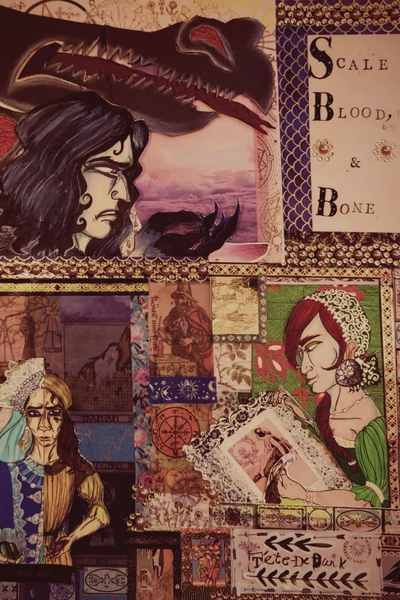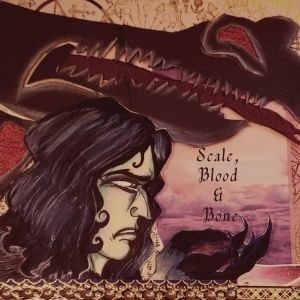The Old God’s Promise
Regardless of the cost, I must find him. I must find the old god.
This solitary objective thrashed relentlessly in the woman’s mind, like an unforgiving pull and push of a storm’s tide against the shore.
The warring endured too long. Defying the pelting rain, the rain freezing into sharp bits of brittle, stinging hail, the woman tied her shabby skirts up, already torn and mud-worn from her day-long trek to the mountain, and took the first foothold on her climb onto the scrubby face of the mountain.
If she could reach the great cavern at the center, the old god awaited her there.
From history passed from mouth and memory from elder to elder throughout the time of her people, the woman kept her knowledge, tight-fisted in her memory. A memory driven by her own rage and indignation.
From time beyond her elders, this land, as small it seemed to the mighty conquerors of old, and its people, however few (and fiercely proud), remained under the weight of tribute. Taxes, goods, their men young and old- all devoured as tributes for the sovereigns they found themselves unwilling vassals unto.
Since memory served her, the woman, like her people, lived on a steady diet of fear, deference and silenced anger. The taxes ensured their diets consisted of little else. Even a harvest ripe with golden wheat, their sovereigns left them a tenth. They were the locusts damning them all to their poverty.
The woman could not remember what good cloth felt-she only knew the coarsely-spun pieces they could keep.
The woman, racking her memory, could not describe the taste of soft bread and good meat, nor the sharp sweetness of sun-ripened wine. Everything was taken. Everything was always denied to her and her people, all saved for sovereigns who granted them precious little, except to be of use for their own gain.
Long had her people lain dormant in their fear-crippled submission, the woman reasoned.
No longer an innocent maiden, the woman was, what she was- a woman. Already wedded for a decade, worn by futile work like her foremothers before her, and barren in the womb, like the empty harvests withered under the baking sun, barren like her people.
Until this season.
She knew the signs. All these years, and now her womb issued forth a child, a child she grieved all those years to have.
Her womenfolk consoled her in her emptiness. What life could she give her child- this life of lack and fear? “Starving for food, but drunk on fear”, the womenfolk contended.
The woman wept the day she realized her womb held her first child. Perhaps her only. A daughter would share her same fate- an endless circle of work and worry. A son, once he reached youth’s strength, would be seized by the sovereigns and sent off into their armies to die in a far-off land.
The sovereigns’ soliders, their own band of cut-throat collectors, as the woman knew them as, came armed and under threat of torching any house failing to pay their tribute.
Few coin came into her hands, and fewer into her husband’s hand. The woman pleaded, but tears and face on the ground proved no sort of payment. And so, starting from the thatched roof of her hut-like house, down to the stone steps, her home burned.
She saved nothing, for there was nothing to save. As her eyes grew numb, almost blind from the glower of the flames devouring what mite she had left in her own life, the fire sparked the memory of the old god. The old god now buried in the tongues of cited lore of the elders. The old god, absent and unseen all these years as the people were weighed down by the invading sovereigns.
The old god, entrenched like the stone of the mountain he inhabited, the mountain he became.
Every morn and evening, when she fetched water from the town’s only well, a clearing twixt the battered, rotting roofs of thatch and shingles, a clear view of the mountain stood in the distance. If she stood at the well, she saw directly upon at the mountain’s heart- a crude, crooked slit of a cavern’s mouth, like the broken lips of a battered man. There, inside, resided the old god. Dormant. Deaf. Deaf and blind unto the people, and unmoving in any deliverance of they who once revered him.
Perhaps I will waken the god. I will go up and revere him, revive his might for us. He may ask for tribute, and if he lends us his might, I shall pay any price. The woman vowed, her hand on her growing womb grasping at the rough cloth of her skirt, as though her grasp could give her pledge before her child through the womb.
You will not live as I did. You will hold your head high. You will never know hunger as I have, my child. Fear will not govern you, but your own pride and straight back! She vowed.
She rose from her knees. Her vow muttered in an endless chant, driving her forward.
Her husband emerged from an ashen shed, salvaging what scraps he might. He saw her walk out of the town. He ran after her. He thought her mad. In a mix of panic and weariness, he begged her to return home.
“What home? Let me go. My mind is clearer than yours- and everyone else’s! I found courage where you lack, husband. Stay here and mourn in the ashes. I am going to the old god!” She roared.
All her life her voice was a weary drone of a mutter, like the groan of a miller’s wheel in the muddy river. Now she roared with such a ferocity, it sounded beyond mortal strength and tenacity. Her eyes glowed like the fire consuming the last frames of their home, all the more sparking and fiery. A grimace lined her face like a stone carving, but all the more living and fierce.
Unnerved, her husband, dumbfounded, let go of her wrist.
And the woman walked. Then she ran.













Comments (17)
See all